Sand Land Review – Devil’s In The Details
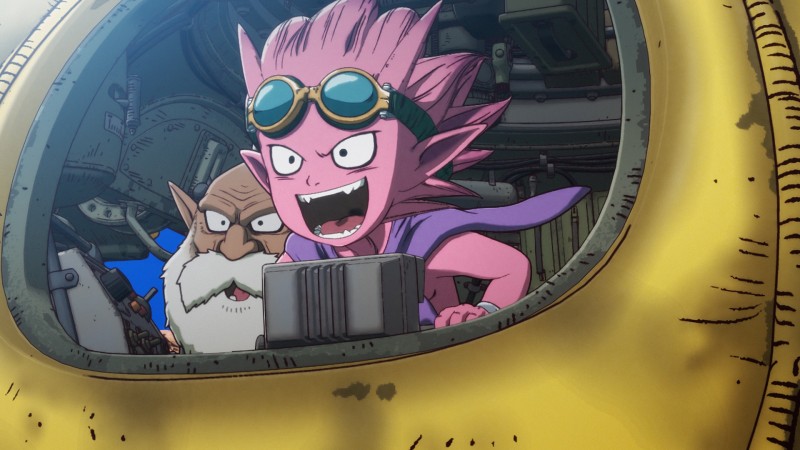
Reviewed on:
Xbox Series X/S
Platform:
PlayStation 5, Xbox Series X/S, PlayStation 4, PC
Publisher:
Bandai Namco
Developer:
Ilca
Rating:
Teen
Sand Land is experiencing an oddly timed resurgence. Its creator, Akira Toriyama (Dragon Ball), recently passed away unexpectedly, effectively pointing a spotlight on his 24-year-old creation just as it was being adapted to film, anime, and video game. The video game has been my entry point into this world with characters, vehicles, and architecture that all resemble Dragon Ball beyond even just an art style, and I enjoyed the opportunity to live in a brand new Toriyama world and story. Other elements of the game, like its animation and performances, vacillate between high and low quality, but ultimately, Sand Land is the kind of experience I want from adaptation – the opportunity to spend time in a big, realized world with a story that pulls you all the way through.
The Sand Land video game functions as both a retelling and a sequel to the 2000 manga. For franchise newcomers like myself, this is a fantastic entry point, but there is a jarring line in the narrative between old and wholly new. Moving beyond the borders of the Sand Land region, on a basic level, doesn’t make sense considering the world built up to that point. But, overall, I like the plot and was locked in to see where it was going early on, even if the characters lack depth. Outside of the overt bad guys, no one learns much in Sand Land, and its characters are basically fully defined from their first line of dialogue. Rao, however, stands out as a smart and committed do-gooder who is quickly accepting of everyone despite their differences – a rare character trait for someone whose accurate, uncreative nickname is “old man.”
As Beelzebub, son of the demon king Lucifer, you decide to assist a human in bringing water back to a dehydrated world. This entails exploring large, open worlds with a collection of vehicles that you can call at any time. Swapping between a tank for skirmishes and a motorcycle to speed across the dunes is a quick process, but you do it so often that I admit getting frustrated with the slightly cumbersome swapping system. I also didn’t love that swapping between vehicles basically requires a full stop. It may sound like nitpicking, but every encounter in the game requires frequent vehicle swapping.
Fighting enemies using your collection of vehicles is a highlight and, understandably, the focus of the game. Despite the focus on vehicle combat, the action feels closer to a third-person shooter and does a good job painting control styles between disparate vehicles. I favored the tank with its powerful guns and strong armor, but the jumping tank used to leap up mountains and the mech used to punch other robots are fun in their own way. Upgrading and customizing them is a slow process, and I rarely felt I was making big, impactful improvements by leveling up or swapping out vehicle parts, but I was always eager to check the garage and see what I could do to inch up my stats.
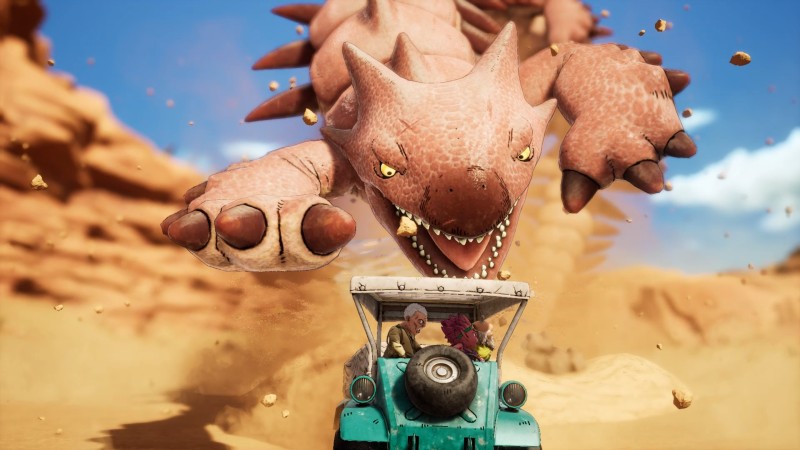

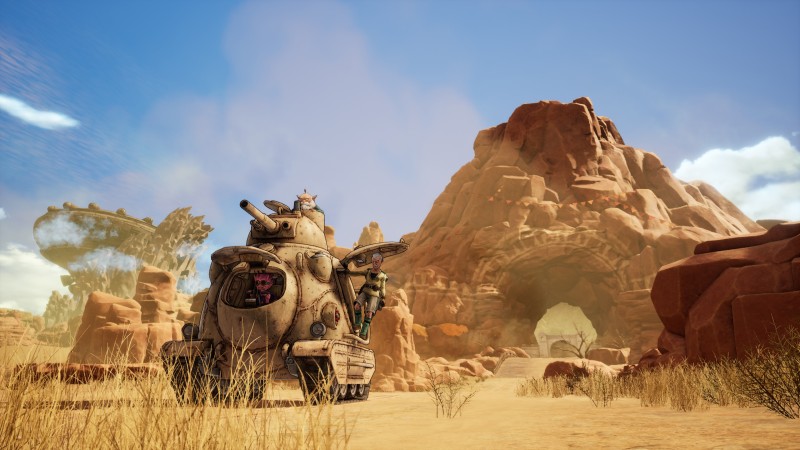


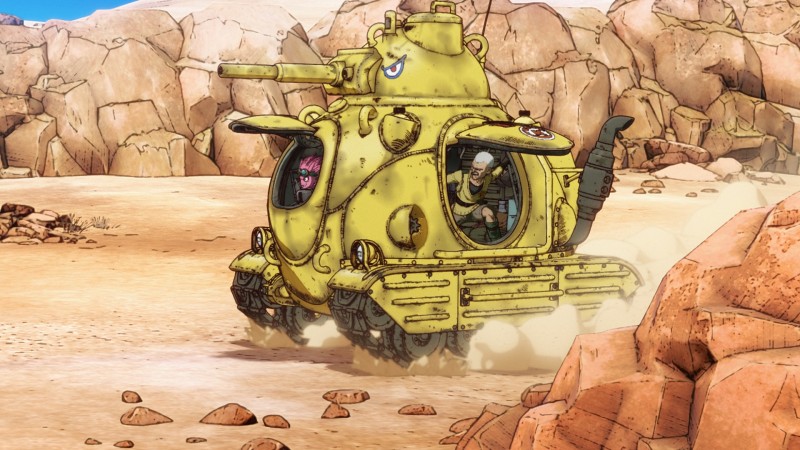

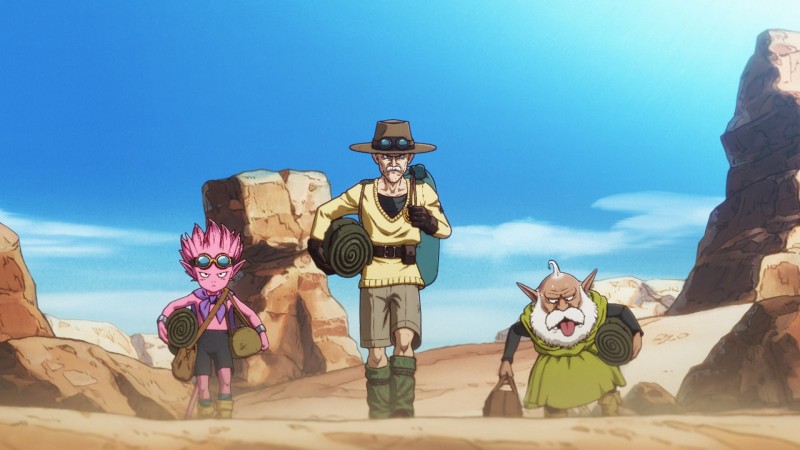





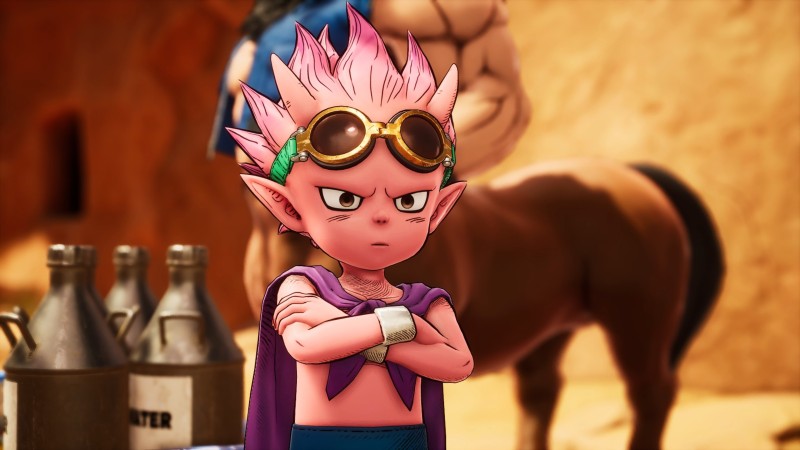
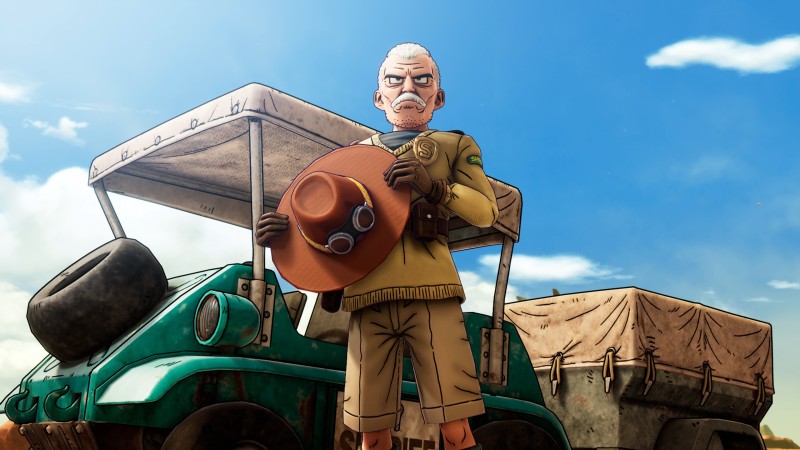
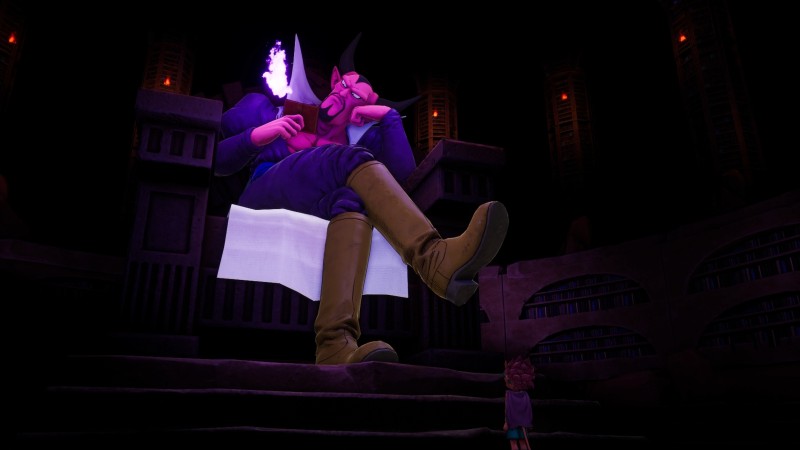

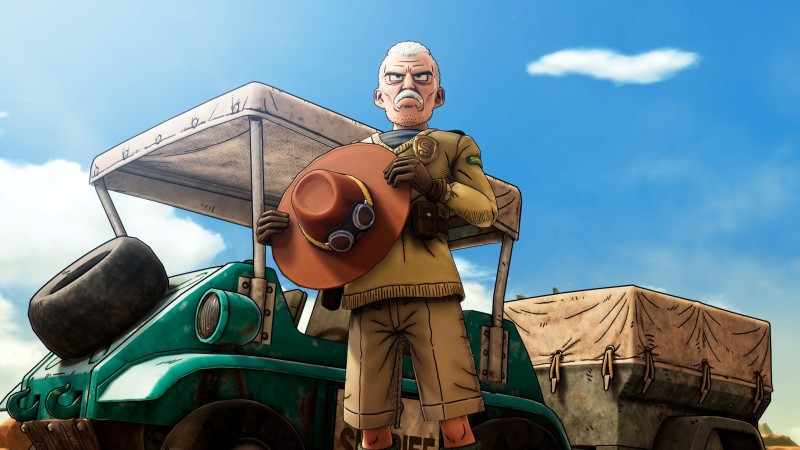
The process of upgrading the town of Spino is similarly rewarding as completing sidequests (many featuring genuinely interesting little stories and characters) brings new people to the growing town. Saving a painter in the middle of the desert, for example, opens up a shop where you can paint and decal your vehicles. You can even decorate the town with furniture, but I admit little interest in that aspect since all of my resources went into improving my vehicles.
Sometimes, Beelzebub progresses without a vehicle, and these sections are generally annoying without ever being too difficult, thankfully. Beelzebub is a powerful demon with a literal garage of armored weapons in his back pocket but insists on occasionally sneaking around for interminable stealth sections. These parts of the game feel like they’re from a different era of video games that we have left behind. The hand-to-hand combat scenarios aren’t as bad, but I was always eager to be back in a tank.
Sand Land has its shortcomings and feels a little overlong despite seeing credits around the reasonable 20-hour mark, but it maintains a charm throughout. Toriyama’s fun sense of humor is front and center with Beelzebub taking on the adventure primarily so his dad will give him an extra hour of video game time every day. I may not have had strong connections with most of the cast and was annoyed with a number of specific sections, but I liked spending time in Sand Land (and beyond) and seeing my garage upgrade and grow.
Score:
7.75
About Game Informer’s review system
Purchase




